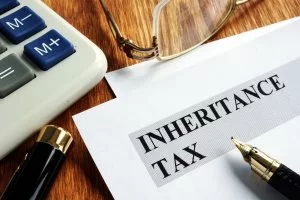Can a Lasting Power of Attorney Be Overridden?

Contact
Table of Contents
Dramatic rise in people making a Power of Attorney
The number of people recognising the importance of making a Lasting Power of Attorney (LPA) has risen dramatically in recent years, with more than six million registered in the UK.
There are two types of LPA – one for health and welfare and one for property and financial affairs – both of which allow a person to appoint others to make important decisions for them if they cannot make their own.
LPAs must be formally registered with the Office of the Public Guardian (OPG) before use. Decisions made under a valid LPA are legally binding, although, importantly, a health and welfare LPA only takes effect once the donor has lost their mental capacity.
How many attorneys can you have on an LPA?
Typically, people appoint up to four attorneys – although technically there is no limit – and for obvious and sensible reasons, they usually choose trusted family members who understand them better than anyone and are invariably the best placed to make decisions on their behalf.
Unfortunately, however, that is not always the case. In our experience, as the number of LPAs has risen, so too has the number of LPA-related disputes, with relatives taking legal action because the LPA is invalid or an attorney is unsuitable or abusing their position.
Who can override a Power of Attorney?
Challenges may arise due to concerns about capacity, fraud, undue influence, or an attorney acting against the donor’s best interests. A Lasting Power of Attorney can be challenged by the donor if they still have mental capacity, by the attorneys or those listed to be notified, concerned relatives, or the local authority, such as social services.
The donor
If they still have capacity and have decided they no longer wish the LPA to stand or the LPA has been created fraudulently or due to duress.
An attorney or other person to be notified
When someone makes an LPA, they can list any individuals they want the OPG to notify. Once those listed have received formal notification that the individual is planning to register the LPA and the identities of the attorneys, they then have the chance to object and revoke the LPA.
Family members
Concerned family members of a donor can challenge an LPA, although relatives may not know for some time that the donor has made an LPA.
Local Authority
Social services can take action if they have genuine concerns that an attorney is making decisions about an individual’s health and welfare that are not in their best interests.
Reasons for challenging a Lasting Power of Attorney
There are several reasons why someone might challenge an LPA, but they must have genuine and reasonable grounds for doing so. For example, a personality clash with one of the attorneys is not a good enough reason to try and have them removed as this would undermine the autonomy of the individual to choose who they want to make decisions on their behalf.
Reasonable grounds can include some of the following:
Lack of capacity
Anyone making an LPA must have the mental capacity defined in the Mental Capacity Act 2005 to be legally valid. Put, the law requires that the donor was able to retain all the ‘relevant information’ at the time. ‘Relevant information’ includes (but isn’t limited to) the effect of the LPA and the identities of their attorneys, the scope of the powers given to the attorneys, and an understanding of the consequences of an LPA.
The 2005 act assumes that the donor has mental capacity, so if a person decides to challenge an LPA because they did not, they will be expected to produce evidence to support their claim.
A common claim is that an LPA made following a diagnosis of dementia is invalid. However, a diagnosis itself does not mean that the person lacked capacity. Typically, the condition, at least in its early stages, means the person’s cognitive abilities tend to fluctuate from day to day and so they may still be capable of making a valid LPA. That said, it would be good practice for any solicitor drafting an LPA to obtain expert medical opinion before executing it. However, a failure to do so would not be enough to prove lack of capacity.
Duress or coercion
A person who is vulnerable in some way may be at risk of an unscrupulous family member pressurising or even threatening them to make an LPA.
Fraud
Where it is suspected that a family member has fraudulently created an LPA in someone else’s name and appointed themselves as attorney, the matter should be reported to the police and legal advice taken. Depending on the circumstances, it might also be prudent to notify social services.
Incompetent or unsuitable attorneys
It’s not unusual for an individual to appoint an unsuitable attorney, for example, they may not be as trustworthy as the donor assumed or may be failing to make the decisions that must be made in the donor’s best interests.
The nature and extent of the decision-making powers given to attorneys under an LPA can vary significantly. An LPA can give unqualified power to a single attorney or ‘joint or several’ power to more than one, meaning each can decide without consulting the others.
Alternatively, attorneys may be required to reach an agreement jointly before making any decisions.
Sometimes, relationships between the attorneys may also break down, for example, if disagreements over the best course of medical treatment or where the donor should live, making collective decisions impossible.
In these cases, one (or more) attorney could be asked to resign, but if they refuse, an application can be made to the OPG for removal.
How to challenge a Lasting Power of Attorney
This depends on who the challenge is being brought by and on what grounds.
Those notified that an LPA is registered have a three-week window to file any objections to the OPG.
Factual grounds to contest a Power of Attorney
Objections can either be on a factual basis, for example:
- The donor or an attorney has died or has become bankrupt
- The donor and attorney were married but are now divorced (or were in a civil partnership that has ended)
- A proposed attorney lacks mental capacity or has chosen not to act as an attorney
- The donor or an attorney has become bankrupt.
Grounds for the revocation of an LPA with supporting evidence
Another way to contest a Power of Attorney is providing supporting evidence on prescribed grounds where:
- The LPA isn’t legally correct
- The donor did not have the mental capacity to make an LPA
- The donor revoked their LPA when they regained capacity
- There was fraud
- The donor was pressured or coerced into making the LPA
- An attorney is acting against the donor’s best interests.
Examples of supportive evidence include medical records, capacity assessments or the recollections of the donor’s family or caregivers from when the LPA was executed.
Process for handling power of attorney challenges
The relevant forms for objections can be found on the gov.uk website. Once submitted, the objector will be contacted by the OPG or Court of Protection to advise if they have enough information to proceed or if a hearing is needed.
Individuals not notified by the OPG can also challenge an LPA, but this is done via the Court of Protection and incurs a £371 charge.
If there are concerns about the LPA after it has been registered, the first step would be to set out your concerns to the OPG. They will then see if they have the legal authority to investigate. If the donor is alive, then generally, they will they will investigate matters. In some circumstances, and where the OPG feel they cannot make a final decision, the complaint would be moved to the COP.
Changing a power of attorney as the donor
Where a donor wishes to change their LPA, such as to remove an attorney or attorneys, they must first meet the threshold for capacity as required by law, which is similar to the ‘relevant information’ test above; that is that they know who the attorneys are, what authority they have, why it is necessary to remove them and the likely consequences of doing so. Sometimes, the donor may want to remove one or more attorneys (but not all) from their LPA.
Deed of revocation for an LPA
To do this, they can send a Deed of Partial Revocation to the OPG to remove up to four attorneys. These deeds must be signed and witnessed to be legally effective. The donor must also tell their attorneys that their powers will be removed.
If a donor wishes to add a new attorney, they must end their LPA and make a new one if they still can. Otherwise, a deputy may need to be appointed.
To end an LPA, the donor must send a Deed of Revocation to the OPG and the original LPA, requesting its cancellation. A revocation notice must also be sent to the attorneys.
If an attorney dispute cannot be resolved, an application can be made to the Court of Protection for their removal. If necessary, the court could appoint a replacement or, alternatively, a deputy – either a relative or a professional deputy such as a solicitor – to make decisions for the donor instead.
Deputies appointed by the Court of Protection are subject to higher scrutiny. They must complete annual reports for the OPG to ensure they fulfil their responsibilities.
LPA system reform
The LPA system has been criticised for having insufficient protection for donors, but new legislation currently going through parliament promises to introduce better safeguards.
Backed by the government and following a public consultation involving groups such as Age UK, Solicitors for the Elderly and the Financial Conduct Authority, the Power of Attorneys Bill aims to modernise the process by allowing LPAs to be made and registered electronically. Paper-based registration will still be available.
Safeguards include introducing identity verification checks of those involved in making, or named in, an LPA, changes to the objection process and restricting who can apply to register an LPA to just the donor. Ministers say the reforms will simplify the system and better protect vulnerable people from abuse or fraud.
Any moves to improve the insufficient safeguards that exist under the current system are to be welcomed. However, with increasing LPAs, financial advisors, like our Power of Attorney solicitors, remain a trusted source and have a crucial role in supporting clients who suspect something isn’t quite right with their or their loved ones’ affairs.
How we can help
With over six million Lasting Power of Attorney (LPA) registrations in the UK, more people are securing their future by appointing trusted attorneys to manage their affairs.
At Osbornes Law, we can help you create an LPA. To speak with one of our solicitors, contact us by:
- Filling in our online enquiry form; or
- Calling us on 020 7485 8811
Share this article
Contact us today
Call us 020 7485 8811
Email us Send us an email and we’ll get back to you
Related InsightsVIEW ALL
- 5.11.2024
Dementia: Protecting The Interests Of Each Spouse
Protecting Loved Ones with Dementia Dementia is a cruel disease, slowly robbing individuals of their character and their abilities. The...
Read more - 12.7.2024
Probate Mediation
Why choose mediation for contested probate? At Osbornes, we understand that probate litigation is often highly emotive. Unfortunately, there is...
Read more - 31.8.2023
What Happens if Someone has Dementia and No...
Can you get Power of Attorney for someone with dementia? It’s a sad reality in an ageing population that...
Read more - 26.7.2023
Wills Disputes: The Duty To Account Is Not...
Beneficiaries frequently ask us whether trustees or personal representatives can be required to provide a financial account. Their request may...
Read more - 1.3.2023
How to prevent someone contesting a will
It is fairly rare in my experience for a parent to write a child out of their will but that...
Read more - 15.11.2022
Contentious Probate Case Studies
Contentious probate involving business assets Our contentious probate solicitors act for the defendants to a claim issued to pronounce in...
Read more - 18.11.2021
Deputy Disputes
Disputes between a deputy and family Disputes between a deputy and the family of the individual concerned, can escalate and...
Read more - 18.11.2021
Particularly sensitive issues around mental capacity
Mental capacity, the right to sex and the carer’s risk of prosecution Does everyone have the right to a...
Read more - 25.10.2021
Inheritance Claims CFA Success Fee Judgment
The Court of Appeal upholds the recoverability of CFA success fees in 1975 Act claims. An individual who claims reasonable provision...
Read more - 20.10.2021
Evidence Needed When Contesting A Will
There must be a clear legal reason to contest a will on someone’s death, backed up by strong evidence....
Read more - 20.10.2021
Dispute Surrounding Interpretation of Will
The ‘nil rate band’ offers an incentive to testators to make their will in a tax-efficient manner, maximising the amount...
Read more - 20.10.2021
Handwriting Expert Witness Concludes Will Forgery
Successful contesting a will claim following testimony of handwriting expert It’s not unheard of for an individual to forge...
Read more - 20.10.2021
Understanding Testamentary Capacity
What is testamentary capacity? Testamentary capacity refers to a person’s legal and mental ability to create a valid will....
Read more - 13.8.2021
What is reasonable financial provision in 1975 Act claims?
Understanding “Reasonable Financial Provision” “Reasonable financial provision” under the Inheritance Act 1975, refers to the financial support that is reasonable for...
Read more - 27.11.2020
How to prevent a loved one entrusting their...
Record numbers of us entrust our finances to loved ones, with over 800,000 Lasting Powers of Attorney (LPA) registered yearly, according...
Read more - 9.10.2020
Undue Influence in Wills
What is Undue Influence in Wills? Undue influence occurs when someone pressurises another person to change their Will to gain...
Read more - 2.9.2020
Left Out of a Will: What Can I...
I was left out of my parent’s will. What can I do? Understanding Your Situation Whilst testators in England...
Read more



















